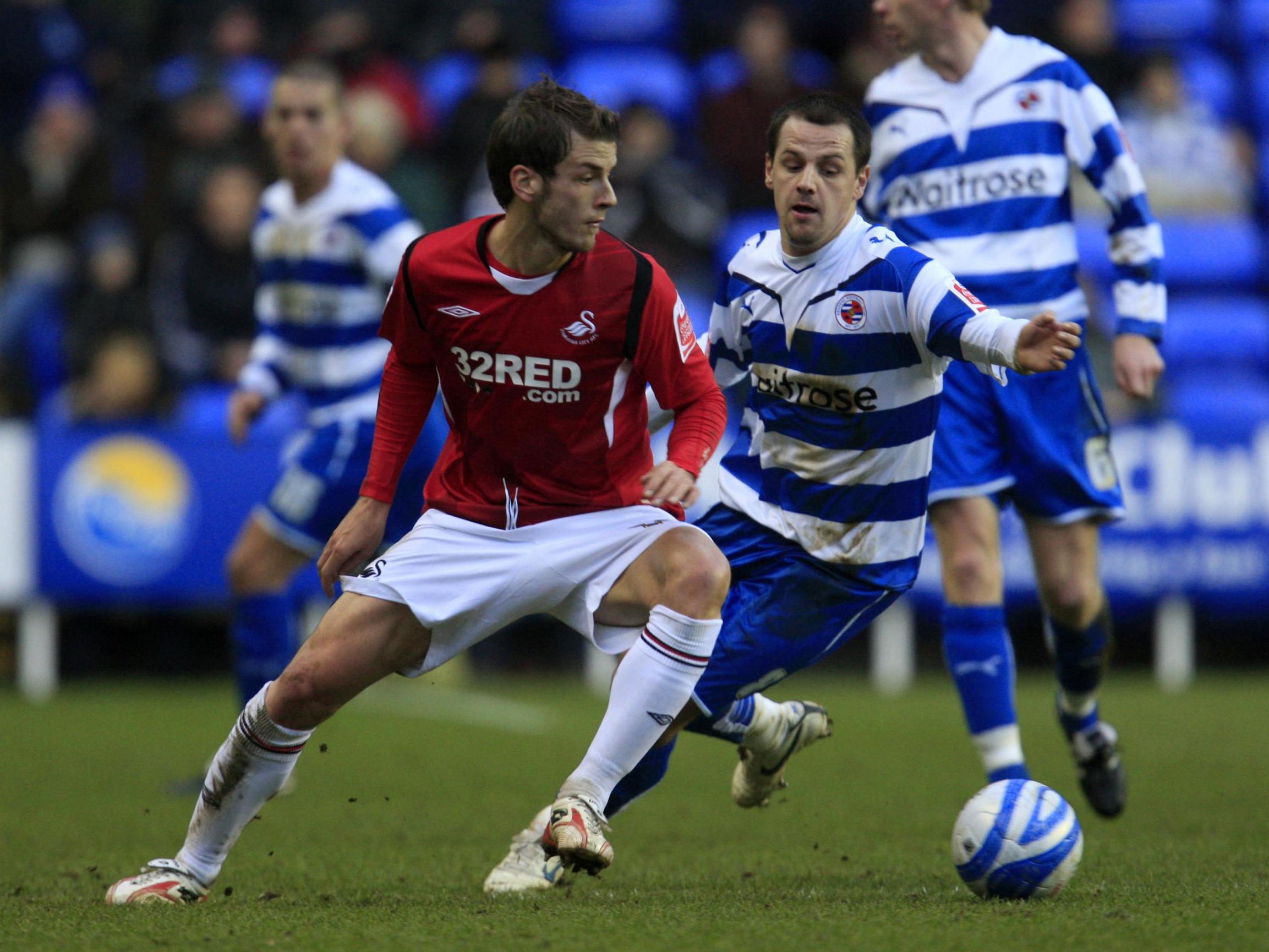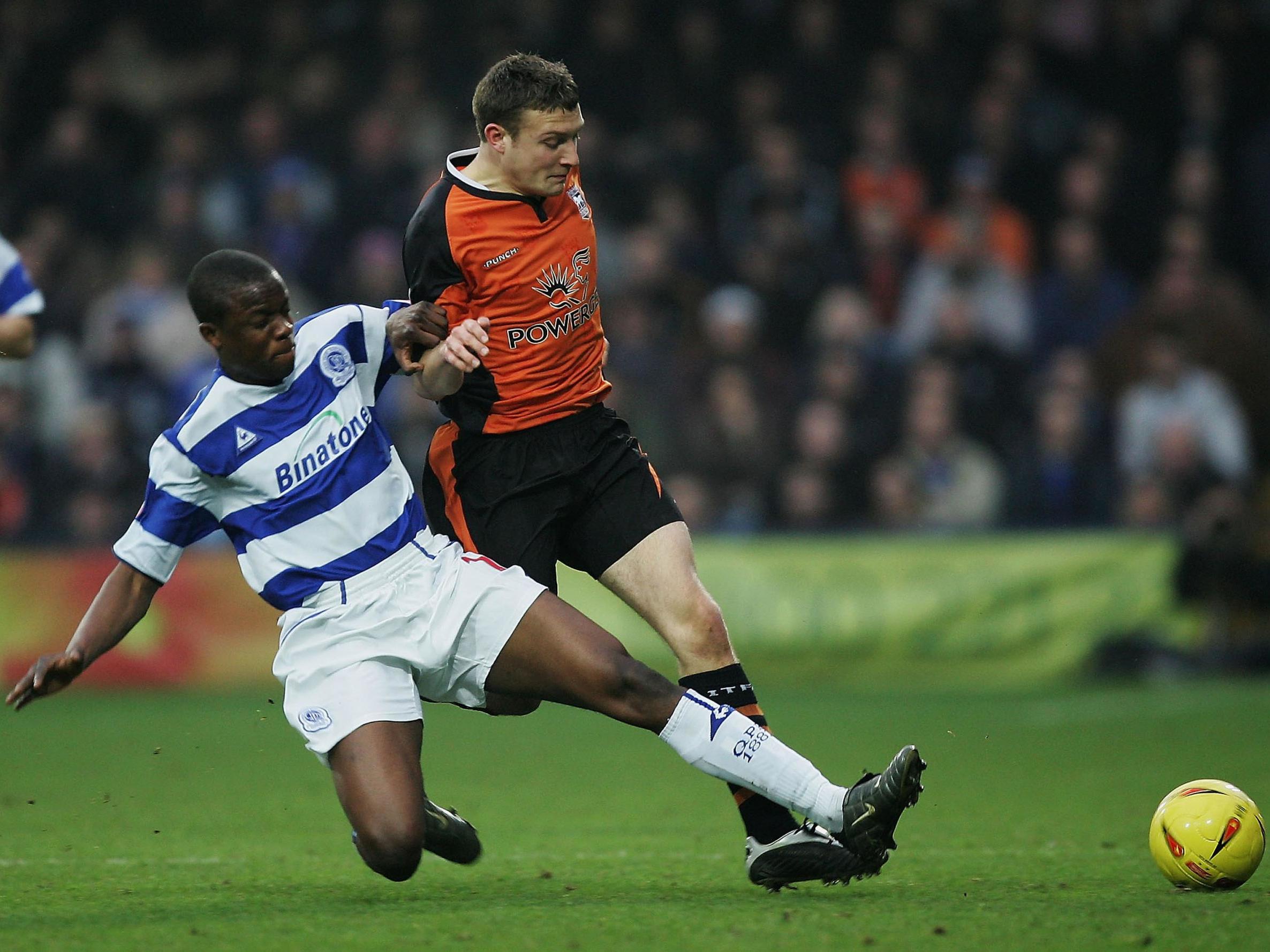‘F***ing hell, this is a bit different to Spain!’ What life in the Championship is really like
English football’s second tier is one of the most relentless, physically and emotionally draining leagues in Europe. Vithushan Ehantharajah speaks to those who have experienced it first-hand


Tonight, Brentford and Fulham will finally bring the Championship season to a close.
It has been more than a year since it began: 2 August, a balmy Friday evening at Kenilworth Road where Luton Town and Middlesbrough played out an engaging 3-3. The play-off final is the league’s showpiece event, scratching that last itch and ticking that last administrative box. As enjoyable as it has been, there will be much relief when the shutters finally come down on a 2019/20 campaign that really has dragged on
That elongated feeling is nothing new when it comes to the Championship. It has always been a slog, even if it ends with the joy that either Brentford or Fulham will feel come Wednesday morning. With it comes a sense of relief.
Getting to the Premier League is great and all, not to mention the £160million. But it is also confirmation you are finally out of one of the most relentless, physically and emotionally draining leagues in Europe. For the losers, the toughest pill to swallow is knowing you have to go through it all again.
“You can get so close and feel so far from the Premier League when you lose that final,” says Robert Snodgrass, speaking from experience after Aston Villa’s play-off final defeat to Fulham in 2018. “We worked hard that season, and it felt like we did everything right and had the squad to go up a level. But unlike any other final, you can’t just think ‘ah, at least we got there’. You know you’ve got to go through all the hard work and tough it out all over again.”
On this occasion Snodgrass didn’t, returning to his parent club West Ham instead ahead of the next season. He has, though, been on the right end of a play-off final result with Hull City in 2016 against Sheffield Wednesday. All in, he has had four seasons of Championship football. Now unequivocally a “Premier League player”, he’s qualified to address the suggestion that the second-tier is one of the most competitive leagues in the world.
“It’s a different kind of pressure,” he tells The Independent. “The Premier League is the biggest stage. Every game, every minute is the most important. There’s so much on every match.
“With the Championship, there is still pressure, but the games come in waves. You barely get time to catch your breath. When you go on a winning run, you can feel on top of the world. But suddenly one defeat becomes two, becomes three in the space of a week. And with so many big teams around, you can drop down the table quickly.
“Morale can go in an instant. You see it. It’s why when squads get together, you need to people pulling together. The ones who don’t are the ones who bring you down. You rise and fall together so I’ve always thought it doesn’t matter if you’re a good player – if you’re not a team player, you’re not worth the hassle in that division.”
The competitiveness of the modern-day Championship is partly down to parachute payments. However, the intangibles of having once been a Premier League side – being more attractive to players, increased sponsorship deals and other investment opportunities – also plays a part. Half of the teams in the division this season have been in the top-flight in the last decade.
But it was around the start of this decade that a cultural shift occurred in the Championship.
As the transfer market began to eat itself, managers started looking elsewhere. Not just below the surface in Europe, where quality could be found without the English premium, but also to new ways of doing things on the pitch.
Andrea Orlandi arrived in England at the start of this tactical revolution. The Spanish attacking midfielder came from the fertile schooling grounds of Barcelona and spent time in their B team playing alongside his good friend, Andres Iniesta.
Now, Orlandi is an erudite pundit on La Liga TV. Back in 2007, he was a 23-year-old looking for purpose after leaving the Nou Camp out of frustration. A trial in Greece didn’t go so well, but he had an admirer in Swansea City boss Roberto Martinez.

Martinez had begun an ambitious reworking of Swansea, then of League One. They did not have the clout to compete with more established sides, so he was encouraged to switch things up with a fluid 4-3-3 and overseas talent like Orlandi. The first stumbling block, though, was getting these imports used to English football.
“I made my English debut at Elland Road against Leeds United in League One,” remembers Orlandi. “We’d just gone one-nil down and I was brought on. Our defence cleared the ball and it came to me with what I thought was time to control. Then a Leeds player – I think it was David Prutton – came from behind and just smashed me! They took the ball and scored the second. I thought to myself, ‘f***ing hell, this is a bit different to Spain!’”
Swansea were promoted for 2008/09, the first of Orlandi’s six Championship seasons for the Welsh side, Brighton & Hove Albion and Blackpool. It was a stretch that took him to 2015, and included a promotion to the Premier League. During this period Orlandi became attuned to a shift to football based more on ground passing and variations of shape.
“When we started under Martinez, and later under Brendan Rodgers, we used to love it when we came against a rigid 4-4-2 system. We’d always have that extra man in midfield and we’d end up really enjoying the game.
“Then suddenly I remember playing against Watford under Gianfranco Zola with a 3-5-2 system that suddenly was making us look like we were not up to speed. Similarly, Hull City under Steve Bruce were well organised, knowing exactly what to do on every part of the pitch. Derby County under Steve McClaren were another team I found difficult.
“From the time I played my first Championship season in 2008 with Swansea, to when I left Blackpool in 2015, there were so many strong teams – not just ones that used to be in the Premier League recently but that were building their own styles of football. It was a Premier League Two.”
It is difficult to quantify a shift in style, but the change in personnel gives some indication as to a more continental vibe. During the 2009/10 Championship, around 53 per cent of non-English players were from Scotland, Wales, Ireland or Northern Ireland. That figure was 36.5% in 2019/20.
Similarly, 2009/10 started with just one of the 24 managers from outside the UK and Ireland. This season there were nine.

Leeds’ dynamism under Marcelo Bielsa and Thomas Frank’s ‘Moneyball’ project at Brentford are standout examples of this shift in style. But the broader effect was to encourage more clubs to put plans in place for more sustainable football. Graham Potter and Chris Wilder seized these opportunities to break convention with Swansea and Sheffield United, respectively, and are now both thriving in the Premier League (Potter with Brighton).
Elsewhere, younger managers like Scott Parker are given time to grow. There is also an element of hero-worship for up-and-coming coaches, with personalities such as Pep Guardiola and Jurgen Klopp sources of inspiration.
Thus the expectations on playing ability has never been greater. The scale of a Championship season has always been demanding on fitness. But the need to be more skilful by default adds an extra challenge. So says Marcus Bean, a defensive midfielder who spent his career across League One and the Championship.
“When I first tasted the Championship with Queens Park Rangers, I always felt I had physical advantages over some players,” says Bean. “I was fit and athletic. But while most players in the Championship had that quality, I felt I could build that up. Gradually through their ability on the ball went to a different level. Now, that ability has increased, where your touch and passing or moving with the ball has to be even more precise. The technical skill of a Championship player is just a non-negotiable know.”
Bean agrees the up-skilling was set off from overseas influences. But he also sees the improvement coming from within. From grassroots level and, well, grass.
“If you look at things back in 2010, it was around then that the FA changed the focus on technical play in the academies. You go and watch an Under-23 game now, and most teams play a similar style because the homegrown kids coached under those guidlines, the ones who make up the majority of squads, are technically sound. It’s how you end up with someone like Jude Bellingham, who comes through at Birmingham City and gets picked up by Borussia Dortmund for £25million at the age of 16.
“There’s also the improvement in facilities. It used to be that come winter, the pitches even at Championship level would get cut-up and muddy. Passing football used to stop just before Christmas and pick back up around the end of February. Now because of the way teams play, almost all the surfaces are pristine all year round. You look at the Championship now I say it’s easier for me to come up with teams that don’t play a passing style.”
With that, though, could come tedious homogeny, perpetuated by the notion of “right” and “wrong” ways to play the game. A side challenging that way of thinking are Bean’s former club, Wycombe Wanderers, who gained promotion from League One via the play-offs.
They did so with a direct style that saw them average 40 per cent possession and were 23rd out of 24 in League One for passes and short passes. Bean is hopeful it can be a point of difference and also reckons it could lead to another shift in style: a counter-measure to possession football that we have seen most successfully with Diego Simeone’s Atletico Madrid.

“Teams won’t like playing against Wycombe because it is a relentless style: it’s in your face, it’s high energy and high tempo. Gareth Ainsworth knows what he is doing and will make little tweaks here and there. But it could throw a few teams off their game.
“We see at the top level that even if a quality team as 70 per cent possession, you can still be in games. Of course, ultimately if you keep giving good players the ball, they are going to hurt you. But the very best teams, with the highest calibre of player, still get undone by a regimented, brutal system like Atletico Madrid. There needs to be a balance, but it could be an antidote to the more refined football you see now. It’ll have to be done perfectly, but we’ve seen that it can work.”
However tonight plays out, it seems whoever joins Leeds United and West Bromwich Albion in the Premier League next season will be three new guinea pigs to determining how meaningful this shift has been. But it says a lot that two promoted teams Sheffield United (9th) and Aston Villa (17th) stayed up replacing more established sides in Bournemouth and Watford.
Actually, the true test is how Bournemouth, Watford and Norwich City fair after relegation, coming into a league with more teams with wide-ranging ambitions beyond survival, which often clouds progressive thinking as it does in the Premier League. The Championship may not be as much about rough and tumble now, but that seems to have made more of a tumultuous grind.
It will continue to evolve without losing its inherent bedlam as we saw on the final day of the regular season when the top two changed three times and five different sides scrapped among the bottom three spots. The most competitive and entertaining league around that just keeps getting better.
Join our commenting forum
Join thought-provoking conversations, follow other Independent readers and see their replies
Comments